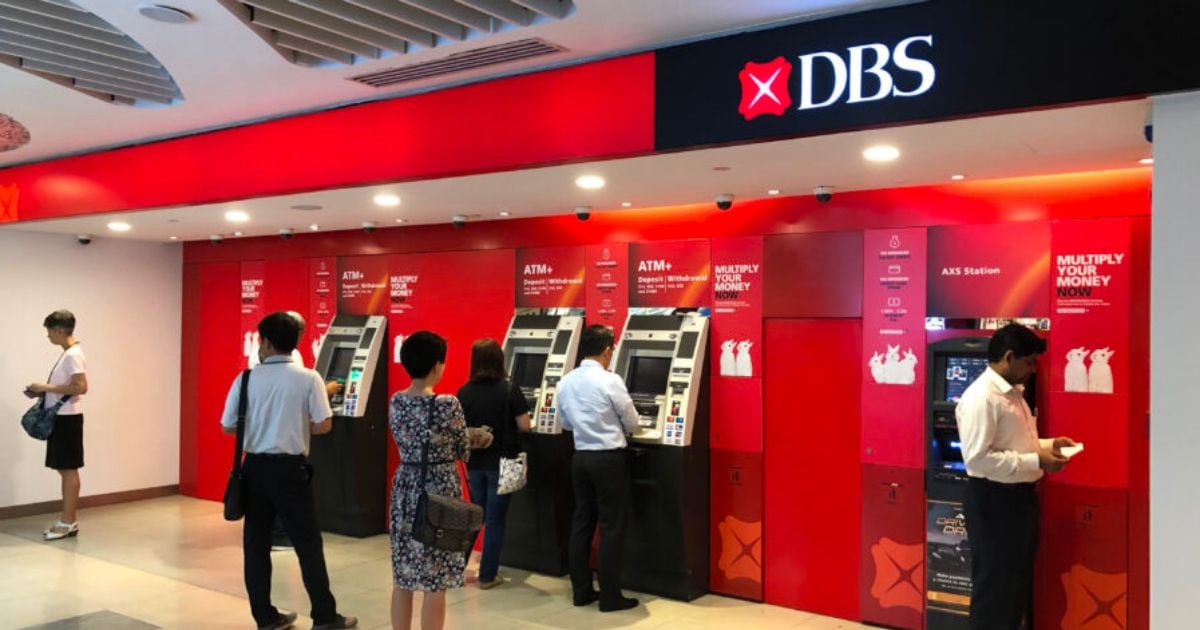If you’re a dedicated DBS Bank user, you may have experienced the disruption of services in October.
These disruptions affected various services offered by DBS, including PayNow, PayLah!, bank transfers, and credit card payments, causing frustration among its users.
To put it simply, some individuals even found themselves stranded in supermarkets because they couldn’t complete their grocery payments, while others were unable to book a Grab ride when they had selected card payment as their preferred method.
Now, DBS Bank faces consequences for these recent disruptions, as the Monetary Authority of Singapore (MAS) has imposed a six-month suspension on non-essential IT changes for DBS Bank.
Here’s everything you need to know about the penalties.
DBS Bank Not Allowed to Take On New Business Ventures
For six months, DBS Bank will not be allowed to pursue new business ventures.
The MAS has specified that, during this timeframe, only IT system changes related to security, regulatory compliance, and risk management will be permitted.
MAS has introduced these measures to ensure that the bank allocates the necessary resources and focuses towards bolstering its technology risk management systems and controls.
These actions come in response to the recurring and prolonged disruptions of DBS’ banking services earlier this year.
Furthermore, MAS has indicated that DBS will not be permitted to reduce the number of its branches and ATMs during this period.
This ensures that sufficient alternatives are available for its customers in case of any new disruptions.
I mean… Who knows if there will be a similar disruption in future?
These directives will remain in effect until MAS is satisfied with the progress made by DBS in enhancing its operational resilience.
MAS to Review DBS’ Progress After Six Months
At the end of the six months, MAS will conduct a comprehensive review of DBS’ progress and may consider extending the duration of the measures, modifying the existing additional capital requirement, or implementing further actions as necessary.
Currently, DBS is subject to an additional capital requirement of approximately $1.6 billion, which MAS imposed back in May.
This decision came in response to the disruptions that affected the bank’s digital banking and ATM services on 5 May, following a significant disruption on 29 March.
Furthermore, the bank has been tasked with applying a multiplier of 1.8 times to its risk-weighted assets for operational risk. This multiplier was increased from the 1.5 times applied in 2022 following the bank’s most severe outage in over a decade in November 2021.
MAS has outlined that DBS will require up to 24 months to implement the planned changes aimed at enhancing the resilience of its digital banking services.
During this transitional period, it’s acknowledged that disruptions may still occur.
In such instances, MAS expects DBS Bank to swiftly restore its services and communicate effectively with its customers in a clear and timely manner.
DBS Bank Will Hold Senior Management Accountable
Well, there is always someone to blame when something wrong happens.
Unfortunately, this time, DBS is holding its senior management accountable for the recent disruptions that affected the bank’s reputation and reliability.
DBS Bank said that it is committed to holding senior management responsible for the recent lapses, and the board is set to enhance its governance approach to oversee the implementation of the remedial plan.
DBS Chairman Peter Seah said in a press statement, “With the incidents that occurred over the past year, we acknowledge that we have not met these expectations and have fallen short of our own standards.
“In recognition of the bank’s room for improvement, senior management will be held accountable, and this will be reflected in their compensation.”
MAS’ decision to impose a temporary halt on Singapore’s largest bank follows a string of service disruptions that have plagued the institution throughout the year.
These disruptions occurred on multiple occasions.
Major disruptions have occurred on 29 March, 5 May, 26 September, 14 October, and 20 October.
Among these incidents, the outage on 14 October stands out as the most severe, lasting 12 hours and significantly impacting the bank’s digital services and ATMs.
